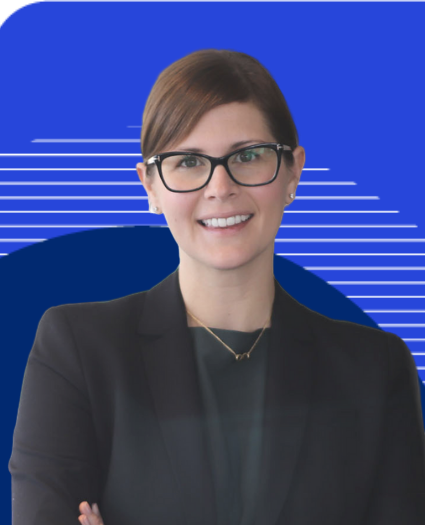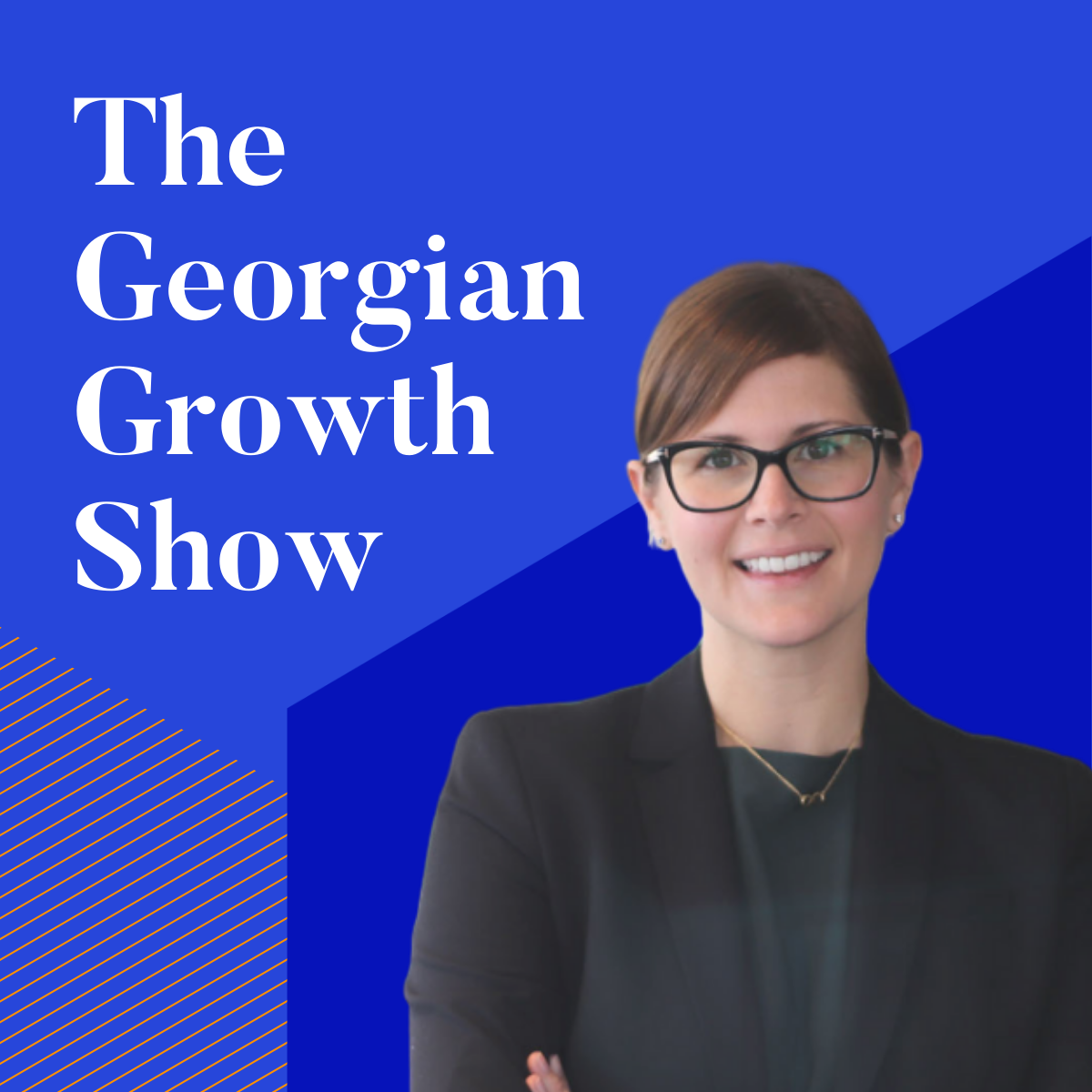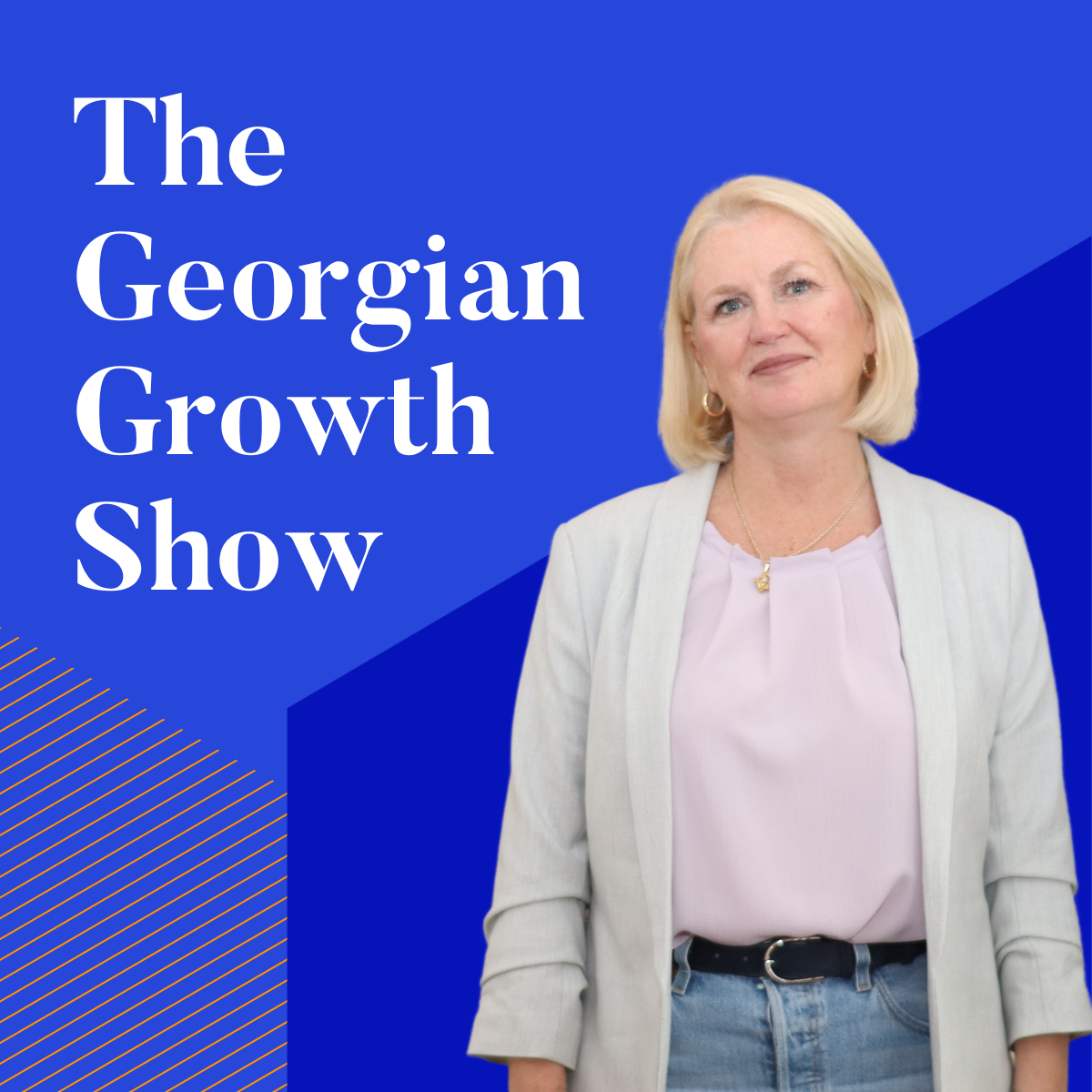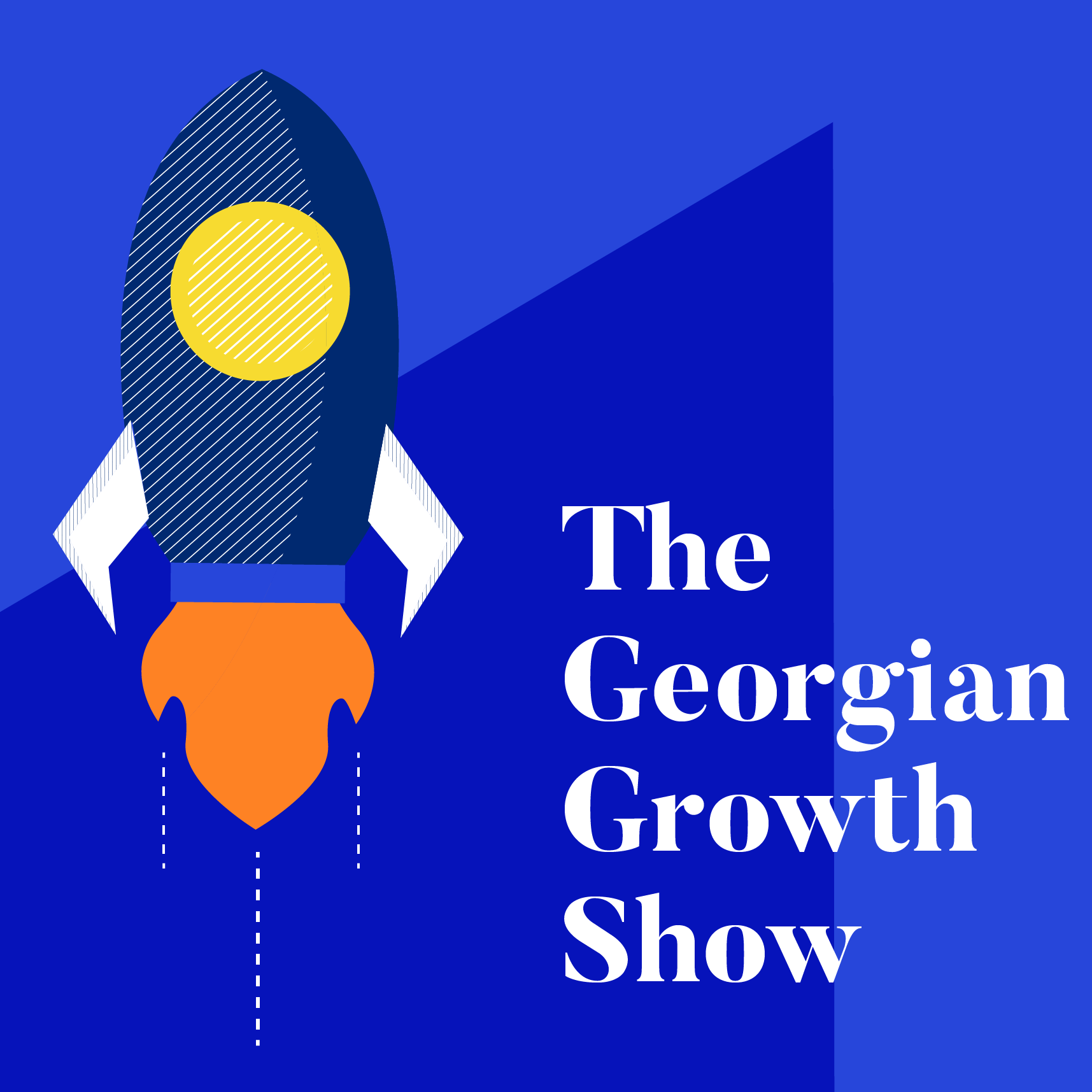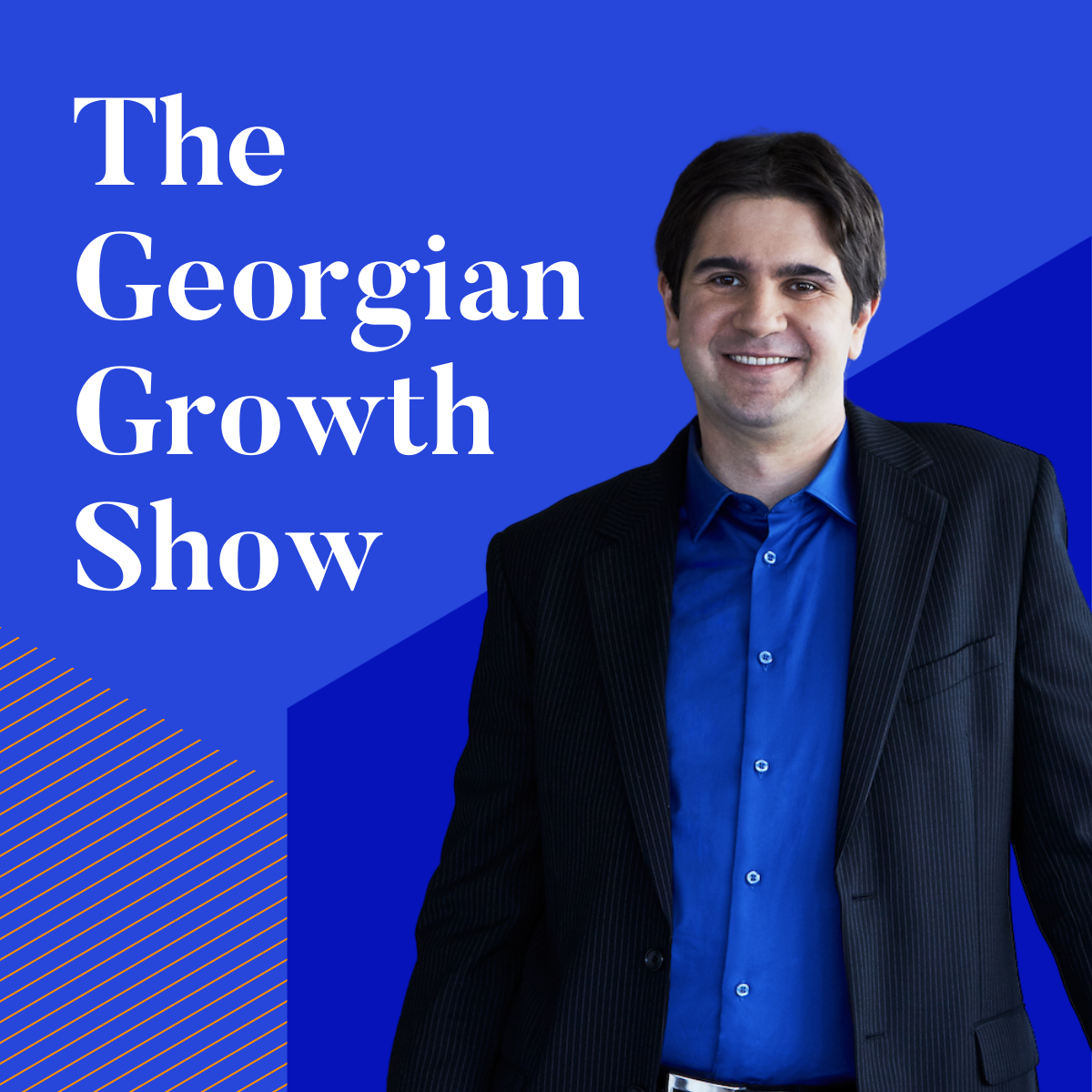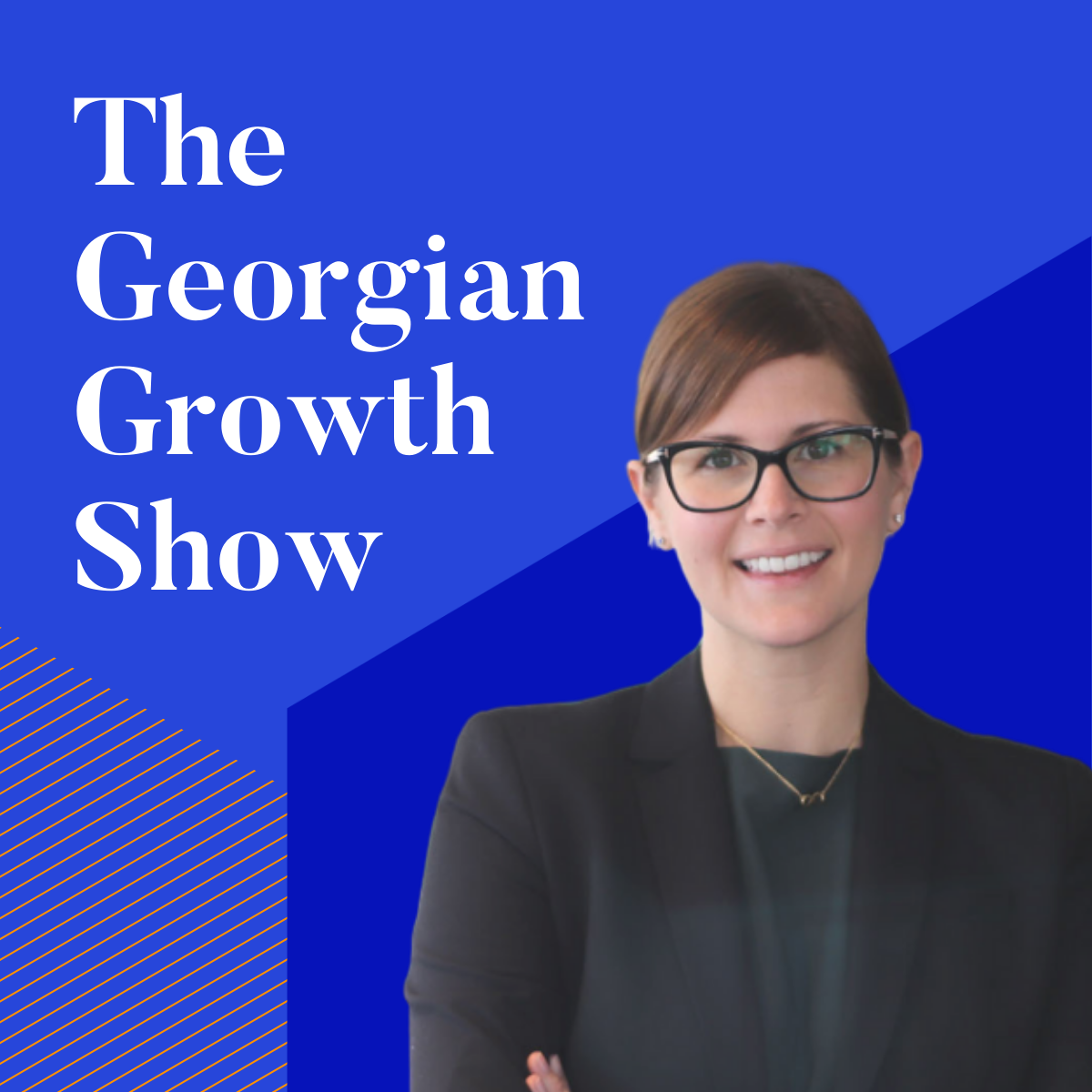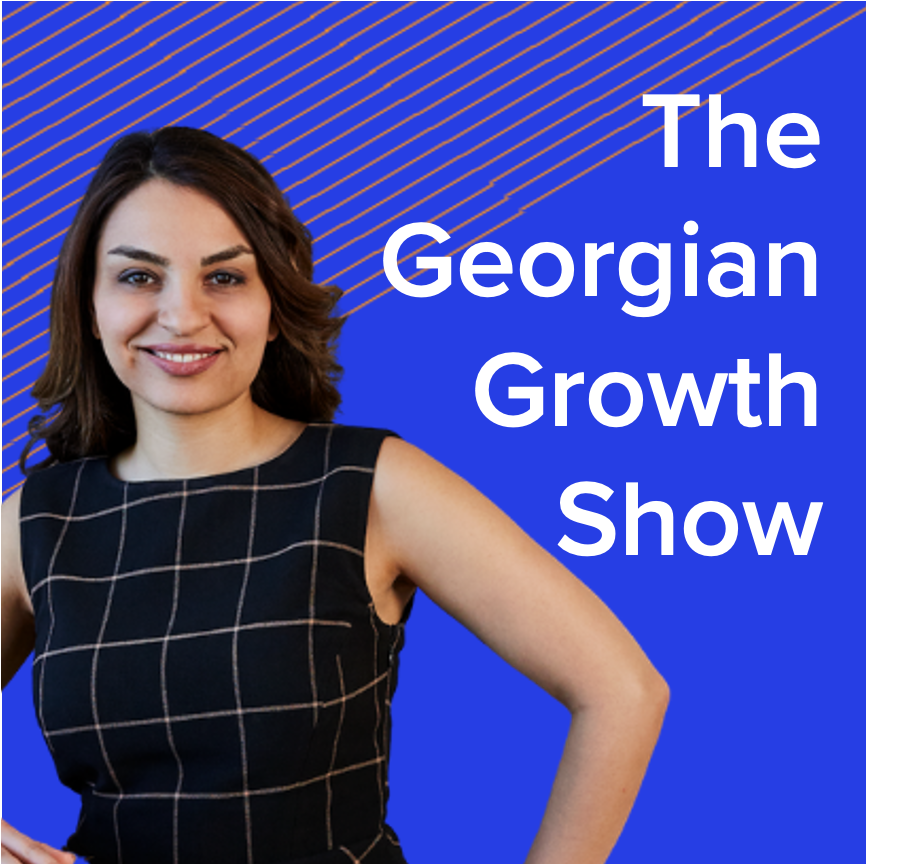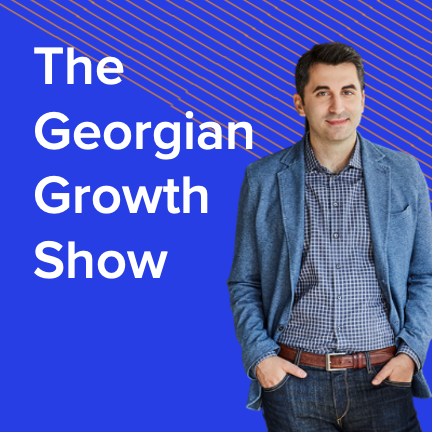Georgian’s Christen Daniels on Value Creation and Exit Planning
- 0.5
- 1
- 1.25
- 1.5
- 1.75
- 2
Jessica Galang: Hi everyone, and welcome to the Georgian Growth Show. I'm Jessica Galang, content editor here at Georgian. On this episode, we'll be chatting with Christen Daniels, Georgian's head of customer success and corporate development. Christen works with our portfolio companies to help them think strategically about value creation and supports them on M& A, relationship development and exit planning. So today, Christen is going to talk about how she develops relationships with companies to help them solve problems, some best practices she's observed, and what value creation actually means. So, Christen, thank you so much for joining us today.
Christen Daniels: Thanks, Jessica.
Jessica Galang: Let's get right into it. I talked a little bit about what you do at Georgian, but it'd be great to hear it from you. Tell us about your work and what excites you.
Christen Daniels: Awesome, thank you. You mentioned, I focus on corporate development, which is correct. I spend a lot of time with our companies when they're thinking about inorganic growth strategies or maybe some tuck- in, so if they're thinking about doing an M& A acquisition. I spend a lot of time as well thinking, as you mentioned, about value creation activities, and I like to use the phrase, begin with the end in mind. From the moment of investment, all the way through to the time that the company is exiting. Really thinking about what's going to move the needle and how we can focus our resources and energy, both at Georgian and with the company, on the initiatives that are really going to help them in the end get that outsized return. That includes things like building strategic relationships, really understanding the dynamics in their ecosystem and facilitating engagements with our broader customer success team. We have a team of very experienced specialists and subject matter experts who can work across a number of different functions, and so we really like to spend our time and energy helping our companies accelerate their growth opportunities.
Jessica Galang: There's a lot of activities there, but I really want to zero in on value creation. So can you dive into what that means and why companies should be thinking about that early on? You described it as thinking with the end in mind.
Christen Daniels: It's really about being mindful. Sometimes in a startup or an earlier stage company, it's very easy to spend all of your time working in the business. This is something my colleague, Joe, who is our go- to- market leader on the CS team, will say often. It's very difficult to take the opportunity to zoom out and work what we would say on the business and be a little bit more strategic about how you approach your different priorities and the activities that you're going to really spend your resources on. Value creation is really about, again, being mindful of how you're allocating resources and making sure that that resource allocation is being put towards the activities that are going to help you get to where you want to be at the end of the investment life cycle.
Jessica Galang: We use a value creation framework here at Georgian. Can you tell us more about it?
Christen Daniels: It has two major components. The first major component is the external or ecosystem view, and we believe that's really important to stay on top of what's happening in your specific kind of market niche. If you're a vertical player and you're specific vertical. But also what's happening more broadly in your space and what different competing technologies might be evolving. What your competitors are doing. What large tech is doing and what your customers are asking for. That's really the foundation of understanding what's going to give you your competitive edge. We really look at that ecosystem view as a starting point. The next major component is actually understanding the business itself, where it's at and ultimately where you want it to be, again at the end of the investment life cycle and beyond. We break that down into three major areas. So the first is core metrics, understanding what the measurable outputs of the business are telling us about how the business is performing. The second bucket are the strategic drivers, so I like to refer to them as the secret sauce of the business. The talent, the culture, product market fit, the value proposition from customers and customer ROI, and thinking about all of those pieces and how they really set your company apart. Then the last bucket that we look at, we call the premium opportunities, and those are the things that really take you from a great return or great outcome to an exceptional outcome. That's what gets you that sort of outsized return. Those are things like the depth of your competitive moat, whether you have a data moat, your ability to enter adjacencies, expand geographically, potentially use M& A as a tool, or to work with other technology companies on integrations. It's really about being able to continually expand your TEN, until a longer term growth story into the future. Everything that we do on the customer success team at Georgian, and more broadly for account management, is rooted in that perspective, and that should help set the tone for the overall strategic imperatives of the business and everything we do should roll up under that. That's how we think you really achieve true value creation by spending energy and time in the places that are going to matter and doing so very strategically.
Jessica Galang: We'll put that value creation framework in our show notes as well for people who want to reference it and see how it can apply to their businesses. So, Christen, I want to talk about your work and your experience as well. What do you love about working with companies, and what are some of the aspects of it that you find the most rewarding?
Christen Daniels: I love that every company that we work with is different. They're trying to accomplish something slightly different. The team of people are different, their approach is different. So for me personally, it's very intellectually stimulating. It's great to get to meet so many different people and understand their different perspectives. It's incredibly satisfying to build those trusting relationships and feel as though you're an extension of these teams and being able to really work with our companies and help them to achieve their success. Getting to do that 45 times over, roughly the size of our current portfolio, is just extremely rewarding and very exciting. Getting in that flavor, that kind of ability to work in all the different environments, but still bring the pattern recognition for the things that we see that are broadly applicable, makes us feel like we're bringing value to the table and we're certainly learning something from our companies with every engagement as well.
Jessica Galang: Every company has their own challenges and their own ways of working, and you're working with so many different cultures and leaders. How do you build relationships with many companies at the same time and bring that value to them?
Christen Daniels: I think that's one thing that really differentiates us at Georgian is that we start with trust and we start with the relationship and everything that we do outside of Georgian certainly, and with our companies in particular. We really try to understand what their goals are. What is it that you as a CEO or as a leader in your organization are trying to accomplish? And how can I bring my experience and my knowledge and my know how to help you get there? It's not about me coming and telling you what I think you should do, although I may have some ideas. It's about really trying to step back and understand what it is you're trying to accomplish. What's your strategy? What's your vision? How are you planning to get there, and can I help you to get there more effectively? Or do I have some ideas that maybe you haven't thought of? It really does feel like a collaboration, and so I think it's really important to focus on the person or the people in the group and building trust through that relationship as the starting point. Them getting to know me and our team, and what our skillsets are, and us being able to bring value to the table and participate in those conversations as a collaborator and not as a hey, thou shalt. Here are the 10 things we think you should go do, go do them. It's very much we're on this journey with you, and we're here to help you get to your ultimate goal.
Jessica Galang: As you're working with these companies, are there any narratives or challenges that consistently come up that some of these companies have in common? And the second part of that as well is, do you have any examples of some of the best practices that you've seen throughout your experience working with companies?
Christen Daniels: There is a lot of pattern recognition, so there's definitely a lot of common challenges for companies that are scaling. There's no question about that. There's probably too many examples to pick one out, but I'll talk specifically about M& A, because that's an area where I spend a lot of time. A lot of our companies recognize that it is an opportunity that they may be able to avail themselves of in order to accelerate a specific strategic priority, but many don't have internal capabilities, or it's the first time the company is thinking about doing an acquisition. It can feel very overwhelming, and that's where I think we can provide a lot of that support to help manage expectations and do a little bit of education around, this is what you can expect from a process. These are the kinds of things we should be thinking about at each stage of the process, and be there to again, be an extension of the team and really help them through that so that they don't have to miss out on the opportunity, if it's something that really can help them accelerate. But at the same time, they don't necessarily have to go out and hire a whole corporate development team if this is just a one- off transaction. That's an area where we've seen lots of companies who are scaling, see an opportunity, but sometimes have a little bit of a challenge in being able to go after it, because it's just not something that they have the muscle memory to do within their organizations, and so we can really provide that support as they work through that process.
Jessica Galang: How do you coach CEOs on thinking like a buyer and why is this mindset important?
Christen Daniels: I think it's really... Listen, M& A at the end of the day, from my perspective is psychology. It's human behavior. It's a negotiation, it's a dance. It's understanding what each party ultimately wants to accomplish and figuring out whether or not there's a transaction that can happen. Whether there's a sweet spot where everybody can align on an outcome. That's also true by the way for an IPO. If a company is going to go public, you have to know that you have something that there's going to be demand for in the public markets and be able to tell that story effectively. I think it's really about taking an outside- in view of the business. It goes back to my first point about working on the business and not in the business, taking that 50, 000 foot view, really being able to step back and zoom out and say, if I was a person who didn't know anything about my business and wanted to acquire it, what am I going to care about? By putting yourself in that mindset, you can really start to understand how you need to craft your narrative, to be able to tell your story effectively, to appeal to that buyer. What is going to need to be in your data room, and how do you need to be thinking about what your metrics should be looking like? If you try to do all of that at the 11th hour, it can be too late, it can be too difficult. I think really understanding that mindset early on, although you don't operate to optimize for it necessarily, I think it's really important to just keep it in mind, keep it sort of in the background of what's a third party going to care about? How do I need to create a system of records, so all this information's going to be readily available? What do my metrics need to look like? So that they're going to be appealing enough that I can get through that gating item, that initial conversation, and be able to really tell a perspective buyer what's special about my business. What are they going to care about? And again, I'm going to pull this back to the value creation framework, because that really was the genesis of us developing the framework in large part. I was really looking for a way to be able to have a conversation with our portfolio leaders about an exit without really talking about an exit. It's very uncomfortable to talk about an exit right after you've invested. That feels very strange for many people. It's not because we're looking to exit at all. Of course, we're on that journey together with the company. It's because we want to think strategically about what's going to matter at the end of the day? What a potential buyer or the public markets are going to prioritize? And pulling that all the way back to how we're thinking strategically about that resource allocation we talked about before.
Jessica Galang: I thought this was a really great overview, both on the tactical side of value creation and what that means, but also the human side and getting into the mindset of the buyer and really thinking about exits and what that means to you. So, Christen, thank you so much for joining us today and sharing your experience.
Christen Daniels: My pleasure. Thanks, Jessica.
DESCRIPTION
In this podcast, Head of Customer Success and Corporate Development at Georgian, explains how she approaches value creation, an intentional pursuit that can increase your chances of securing a successful exit. She builds relationships with many companies at the same time, and works with them on their unique challenges and opportunities.
In this podcast, you’ll learn:
- What is value creation?
- The value creation framework we use at Georgian (read more about it here: https://georgian.io/an-executive-framework-for-value-creation-and-strategic-planning/)
- How Christen works with companies
- The common challenges she’s observed between companies
- How CEOs can think like a buyer
Today's Host

Jon Prial

Jessica Galang
Today's Guests
